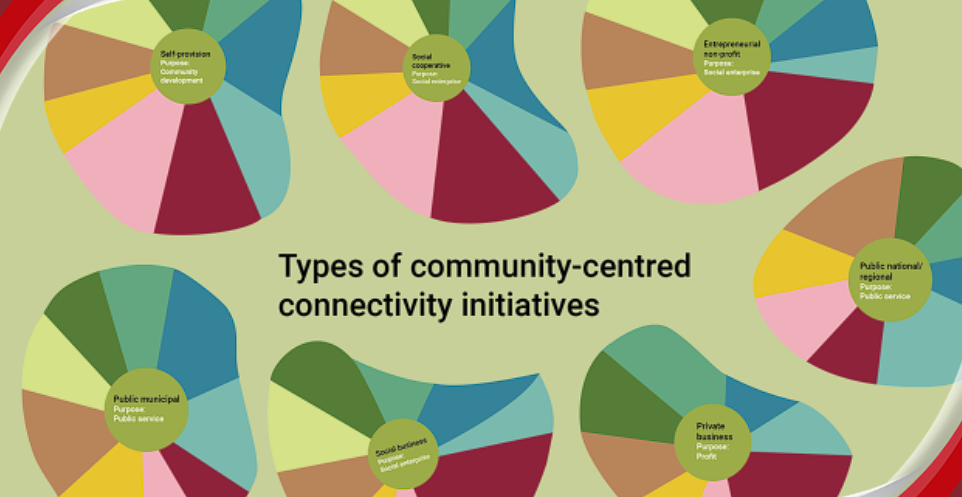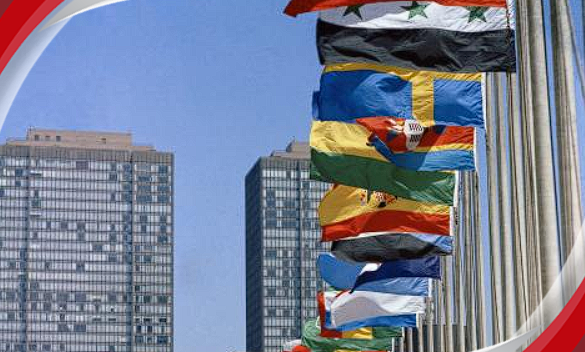Articles
The Ambivalences of Power Shift
-
1 month ago
Power shift, localisation, locally led, and globally connected are just a few terms that try to catch the characteristics of the debate around the future of civil society organisations, particularly international ones. Sometimes dubbed as the ‘industrial aid complex that needs to be overcome’, ICSOs are increasingly looking at a transfer of decision-making power to entities or partners in the Global South, while trying to determine their own future roles. A lot of transformation is already happening in the sector, and the discussions have moved from the ‘why’ to the ‘how’ and the ‘what does it take’. Since 2018, the International Civil Society Centre (ICSC) accompanies power shift processes of ICSOs through so-called ‘governance labs’, where progress and challenges are addressed through mutual learning and exchange, and where best practices and failures are discussed alike. Each lab has a particular focus. This year we met in Thiès, Dakar, hosted by the Senegalese NGO Tostan in their Training Centre, to concentrate on the interplay of power shift with the shrinking of operating space for civil society. The underlying question was, how far can power imbalances and the desire to shift power be instrumentalised by those who want to weaken civil society, particularly in authoritarian environments. And how do we stay true to our ambitions to localise social justice work but actively address its dangers? A worldwide wave of nationalism is visible throughout the over 40 national elections happening in 2024. International solidarity is deprioritised in many rich societies, and liberal democracy and the role of organised civil society are actively undermined by anti-rights groups and oppressive regimes. International and local CSOs are under direct attack, the former being accused as ‘foreign agents’, the latter as Trojan horses promoting non-traditional values. In such times, the shift of decision-making powers comes with ambivalences, potentially feeding into nationalist, anti-liberal agendas. This year’s Power Shift Lab was the second that was held in the Global South, after the 2023 Nairobi event. It was a welcome opportunity to enrich discussions in the sector from the perspective of local communities and partner organisations of ICSOs. Reflections around the impact of shrinking space were candid and open and showed the willingness to get it right rather than moving fast. While we are looking at a new sharing of responsibilities, we need to be clear about risk sharing, new types of accountabilities, and an increased sense of solidarity between different civil society actors vis-à-vis those who try to divide and undermine us. Key Takeaways from the Power Shift Lab and What Leaders Are Saying:ICSC’s Power Shift Lab in Senegal helped us as leaders within the civil society community to reflect on the intersection of governance transformation and shrinking civic space, delving into how such transformations challenge yet drive change within a complex organisation and evolving sector. Making space to reflect on our goals and hopes for long term power shifting allowed me to think about Plan’s role as a leader in supporting girls rights and girls in crisis. How might we consider more emphasis on governance actions that we can commit to today that can build momentum from within, ensure we approach a community–driven approach to changes in our governance, look to external partners and peers for support, and, as always, ensure our governance centres the representation and needs of young people. I also walked away with incredible learning from peer organisations – who had boldly embraced change in terms of operating models, global pay equity, decentralised headquarters, and pursuing outside culture checks – to help ensure accountability. Thank you for the space to think about ways to move forward, to do things differently, and to leave with even better relationships with fellow colleagues and champions. Kathleen Sherwin, Chief Strategy & Engagement Officer (and External Representative)
Plan International My key insights from the Power Shift Lab were that considerable governance changes are happening across the sector, with many ICSOs not only acknowledging existing power imbalances within our organisations and with our partners and communities, but also the shared commitment to implementing and learning from new pathways to sharing agency and power, both internally and externally. While acknowledging the progress made so far, we must continue to explore new pathways towards more equitable partnerships, where local and national organisations take the lead wherever possible; meaningful involvement of diverse underserved and under-represented constituents in governance (children, people who are differently abled, youth, marginalised, etc.). We must also forward redressing institutional and financial hurdles (including donor policies and practices) by strengthening advocacy for systemic change across the humanitarian and development ecosystem. While we have focused largely on formal power in governance transformations, we hardly pay equal attention to informal sources of power and their implications for the power shift and the intersection of governance transformation and civic space. It is therefore important for us to take a critical look at our internal cultures and the external environment/cultures of the societies where we operate to determine how best to centre informal power and intentionally blend both formal and informal powers for fit-for-purpose governance frameworks and organisational strategy. Mohammed-Anwar Sadat Adam, Programs and Policy Influencing Lead,
Oxfam in Ghana I had the privilege of attending the Power Shift Lab together with eighteen dynamic representatives of civil society organisations. I was puzzled by the topic and approached the lab with an open-mind and with curiosity, ready to listen, understand, and share. During these three days, led by Wolfgang and Myriam, we asked relevant questions about the future of the sector, and we managed, as a group, to picture different roles for the future of ICSOs. It was an insightful journey, enriched by the different backgrounds and levels of responsibility of the participants. In my opinion, the key word behind the power shift is changes. Changes with big C, as these would include multiple layers, some of those needing to happen at individual level, some others at organisational-governance level, and others again at systemic level. Exploring the power dynamics, understanding the trends of the sector – and of society as a whole – and the related obstacles, allowed me to better recognise my leverages for a change. It is a process, we need to play the long game, learning how to really put the communities we work with at the centre of our actions, learning how to remain relevant while the civic space is shrinking. Francesco De Pasquale, Mali Country Director,
Welthungerhilfe Attending the ICSC Power Shift Lab was a very rewarding experience for me. It was my first time, and I found it incredibly insightful and enriching both personally and professionally. Reflecting on my own organisation’s journey and learning from others was a real eye-opener. The sessions, presentations, and discussions with a diverse group gave me solid insights into the concept of power shift and boosted my confidence to drive positive change in my organisation. One key takeaway for me is that every organisation’s path to power shift is unique, with its own milestones and success indicators. I highly recommend anyone in the development or humanitarian sector to join these labs and dive into the discussions on accelerating inclusive power shift. Papa Diouf, Global Practice Area Lead for Health,
VSO International The diversity of people, organisations, and perspectives was again the key success factor for advancing our common ambition – to become more participatory, legitimate, and locally-led, while at the same time addressing practical and political obstacles in a collaborative way. This enables collective learning and sets a sign against isolationism. Where do we go from here? The next step is to commit to action. Whether it’s rethinking governance models, addressing informal power structures, or actively advocating for systemic change within donor policies, ICSOs must push the envelope. As we look ahead to 2024 and beyond, let’s ensure that our efforts to shift power are not only transformative but also resilient in the face of external threats.
Plan International My key insights from the Power Shift Lab were that considerable governance changes are happening across the sector, with many ICSOs not only acknowledging existing power imbalances within our organisations and with our partners and communities, but also the shared commitment to implementing and learning from new pathways to sharing agency and power, both internally and externally. While acknowledging the progress made so far, we must continue to explore new pathways towards more equitable partnerships, where local and national organisations take the lead wherever possible; meaningful involvement of diverse underserved and under-represented constituents in governance (children, people who are differently abled, youth, marginalised, etc.). We must also forward redressing institutional and financial hurdles (including donor policies and practices) by strengthening advocacy for systemic change across the humanitarian and development ecosystem. While we have focused largely on formal power in governance transformations, we hardly pay equal attention to informal sources of power and their implications for the power shift and the intersection of governance transformation and civic space. It is therefore important for us to take a critical look at our internal cultures and the external environment/cultures of the societies where we operate to determine how best to centre informal power and intentionally blend both formal and informal powers for fit-for-purpose governance frameworks and organisational strategy. Mohammed-Anwar Sadat Adam, Programs and Policy Influencing Lead,
Oxfam in Ghana I had the privilege of attending the Power Shift Lab together with eighteen dynamic representatives of civil society organisations. I was puzzled by the topic and approached the lab with an open-mind and with curiosity, ready to listen, understand, and share. During these three days, led by Wolfgang and Myriam, we asked relevant questions about the future of the sector, and we managed, as a group, to picture different roles for the future of ICSOs. It was an insightful journey, enriched by the different backgrounds and levels of responsibility of the participants. In my opinion, the key word behind the power shift is changes. Changes with big C, as these would include multiple layers, some of those needing to happen at individual level, some others at organisational-governance level, and others again at systemic level. Exploring the power dynamics, understanding the trends of the sector – and of society as a whole – and the related obstacles, allowed me to better recognise my leverages for a change. It is a process, we need to play the long game, learning how to really put the communities we work with at the centre of our actions, learning how to remain relevant while the civic space is shrinking. Francesco De Pasquale, Mali Country Director,
Welthungerhilfe Attending the ICSC Power Shift Lab was a very rewarding experience for me. It was my first time, and I found it incredibly insightful and enriching both personally and professionally. Reflecting on my own organisation’s journey and learning from others was a real eye-opener. The sessions, presentations, and discussions with a diverse group gave me solid insights into the concept of power shift and boosted my confidence to drive positive change in my organisation. One key takeaway for me is that every organisation’s path to power shift is unique, with its own milestones and success indicators. I highly recommend anyone in the development or humanitarian sector to join these labs and dive into the discussions on accelerating inclusive power shift. Papa Diouf, Global Practice Area Lead for Health,
VSO International The diversity of people, organisations, and perspectives was again the key success factor for advancing our common ambition – to become more participatory, legitimate, and locally-led, while at the same time addressing practical and political obstacles in a collaborative way. This enables collective learning and sets a sign against isolationism. Where do we go from here? The next step is to commit to action. Whether it’s rethinking governance models, addressing informal power structures, or actively advocating for systemic change within donor policies, ICSOs must push the envelope. As we look ahead to 2024 and beyond, let’s ensure that our efforts to shift power are not only transformative but also resilient in the face of external threats.
Related Articles Posts
Categories
Popular Post
-
 SA’s IT spend to outpace GDP growth 1 year ago
SA’s IT spend to outpace GDP growth 1 year ago -
 Vodacom, Netstar launch free in-taxi Wi-... 1 year ago
Vodacom, Netstar launch free in-taxi Wi-... 1 year ago -
 South Africa under pressure to fill cybe... 1 year ago
South Africa under pressure to fill cybe... 1 year ago -
 Organisations with a strong employee val... 1 year ago
Organisations with a strong employee val... 1 year ago -
 Joint policy-in-action event highlights... 1 year ago
Joint policy-in-action event highlights... 1 year ago -
 Boost your digital transformation journe... 1 year ago
Boost your digital transformation journe... 1 year ago








